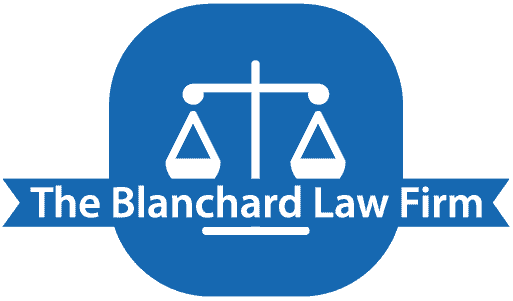
24 Oct Probate vs. Trusts: Which Is Right for Your Family?
When planning for the future, one of the most important decisions a family can make is determining how to manage and transfer assets after a loved one’s death. Estate planning can feel overwhelming, particularly when faced with unfamiliar legal terms like probate and trusts.
Understanding the differences between these two options and how they impact your family is crucial for creating a plan that protects your loved ones, preserves your wealth, and minimizes unnecessary stress.
At The Blanchard Law Firm, we help families navigate these choices and craft estate plans tailored to their goals. This article explores the key differences between probate and trusts, the benefits and drawbacks of each, and how to decide which strategy is right for your family.
What is Probate?
Probate is the court-supervised process through which a deceased person’s assets are distributed and debts are settled. If someone dies with a will, probate validates the will, appoints an executor to manage the estate, pays debts and taxes, and distributes the remaining assets to beneficiaries.
Probate typically involves:
- Filing a petition with the probate court
- Notifying heirs, beneficiaries, and creditors
- Collecting and inventorying assets
- Paying debts, expenses, and taxes
- Distributing the remaining property according to the will or state law if no will exists
While probate ensures a structured process for settling an estate, it can sometimes be time-consuming, public, and costly, depending on the complexity of the estate and state regulations.
What is a Trust?
A trust is a legal arrangement in which a person (the grantor) transfers assets to a trustee, who manages them for the benefit of designated beneficiaries. Trusts can serve many purposes, from avoiding probate to providing long-term financial security for loved ones.
There are two main types of trusts commonly used in estate planning:
-
Revocable Living Trust: The grantor retains control over the assets during their lifetime and can modify or revoke the trust at any time. Assets in a revocable trust typically bypass probate, allowing for a faster and more private transfer to beneficiaries.
-
Irrevocable Trust: Once established, the grantor generally cannot modify or revoke the trust. Irrevocable trusts can provide significant tax advantages, asset protection, and long-term planning benefits.
Trusts are highly flexible and can be customized to fit your family’s unique needs, including specifying conditions for distribution, managing assets for minor children, or providing for family members with special needs.
Key Differences Between Probate and Trusts
While both probate and trusts serve the purpose of transferring assets, they differ in several important ways:
| Feature | Probate | Trust |
|---|---|---|
| Process | Court-supervised | Managed privately by trustee |
| Timeline | Months to years | Can be immediate or much faster |
| Cost | Court fees, legal fees | Trustee fees, legal setup costs |
| Privacy | Public record | Generally private |
| Control | Limited after death | Grantor retains control (revocable) |
| Flexibility | Asset distribution per law or will | Can specify detailed conditions for beneficiaries |
| Tax Planning | Limited benefits | Potential tax and estate planning advantages |
Understanding these differences helps families make informed decisions based on their priorities, whether that’s speed, privacy, cost, or long-term control.
Advantages of Probate
Probate offers several benefits that can make it an appropriate choice for certain families or estates:
-
Legal Oversight: Probate ensures court supervision, which can help prevent disputes and provide a structured method for distributing assets.
-
Validation of Wills: The process confirms the authenticity of the will and protects against claims of fraud.
-
Debt Settlement: Probate provides a clear framework for paying creditors and resolving outstanding debts.
-
Clear Title Transfer: The court provides legal authority for transferring property, which can reduce complications when selling or transferring real estate.
For smaller estates or situations where simplicity is more important than speed or privacy, probate may be sufficient.

Drawbacks of Probate
Despite its benefits, probate also has potential disadvantages:
-
Time-Consuming: Even simple estates can take months to settle, while complex estates may take a year or longer.
-
Costly: Court fees, executor fees, and legal expenses can add up, reducing the value of the estate passed to beneficiaries.
-
Public Process: Probate records are public, meaning details of the estate, including assets and beneficiaries, are accessible to anyone.
-
Potential for Family Disputes: While probate provides oversight, disagreements among heirs may still arise, potentially prolonging the process.
These limitations make probate less appealing for families who want privacy, speed, and more control over how assets are distributed.
Advantages of Trusts
Trusts offer unique benefits that can address many of the challenges associated with probate:
-
Avoid Probate: Assets held in a trust generally bypass the probate process, allowing for faster, more efficient distribution.
-
Privacy: Trusts are private documents, so the details of asset distribution are not part of the public record.
-
Flexibility: Trusts can include specific instructions on how and when assets are distributed to beneficiaries, including staggered payments or conditions for use.
-
Asset Protection: Certain irrevocable trusts can protect assets from creditors, lawsuits, or divorce settlements.
-
Tax Planning Opportunities: Trusts can be structured to minimize estate and gift taxes, preserve wealth, and provide long-term financial planning for heirs.
For families seeking control, privacy, and potential tax advantages, trusts often provide a superior solution to probate alone.
Drawbacks of Trusts
While trusts are powerful tools, they are not without limitations:
-
Setup Costs: Creating a trust involves legal fees and may require ongoing administration costs for the trustee.
-
Complexity: Trusts can be more complex than simply writing a will, requiring careful planning and management.
-
No Court Oversight (Revocable Trusts): While privacy is a benefit, it also means fewer formal checks on the trustee, so careful selection of a trustee is essential.
Despite these considerations, for many families, the benefits of trusts outweigh the drawbacks, particularly when privacy and efficient asset transfer are priorities.
Choosing the Right Option for Your Family
Deciding between probate and a trust is not always an either-or choice. Many estate plans combine both tools to meet specific goals. Key factors to consider include:
-
Size of the Estate: Smaller estates with limited assets may be efficiently handled through probate, while larger or more complex estates may benefit from a trust.
-
Privacy Concerns: Families who wish to keep asset distribution private often choose trusts.
-
Speed of Distribution: Trusts can facilitate immediate access to assets upon death, whereas probate can take months.
-
Tax Planning Goals: Trusts offer opportunities for estate and income tax planning, especially for high-value estates.
-
Family Dynamics: Trusts can protect vulnerable beneficiaries, prevent conflicts, and provide structured distribution for minor children.
-
Asset Types: Real estate, business interests, and digital assets may benefit from trust management to avoid probate complications.
Consulting with an estate planning attorney is critical. At The Blanchard Law Firm, we help families analyze their assets, family circumstances, and goals to determine the most effective combination of probate and trust strategies.
Integrating Probate and Trusts
In many cases, the best approach is an integrated estate plan that combines both probate and trusts:
- Will and Trust Combination: A will can serve as a safety net for assets not placed in a trust.
- Pour-Over Wills: These direct assets not already in a trust to “pour over” into the trust upon death, ensuring all assets are managed according to your instructions.
- Specific Bequests Through Probate: Smaller or sentimental items may still be distributed via probate to simplify administration.
This hybrid approach allows families to enjoy the benefits of trust protection while retaining the court-supervised process for certain matters, providing flexibility and security.

Protect Your Family’s Future Starting Today
Choosing between probate and trusts is one of the most important decisions a family can make when planning an estate. Probate provides legal oversight and structure, while trusts offer privacy, control, and efficiency. For many families, a combination of both tools provides the best solution.
By understanding the differences, advantages, and potential drawbacks, families can make informed choices that protect their loved ones, preserve their legacy, and reduce stress during challenging times.
Contact The Blanchard Law Firm today to schedule a consultation and develop an estate plan that aligns with your family’s goals. Planning ahead ensures that your assets are managed according to your wishes and that your loved ones are cared for — giving you peace of mind and security for the future.

Sorry, the comment form is closed at this time.